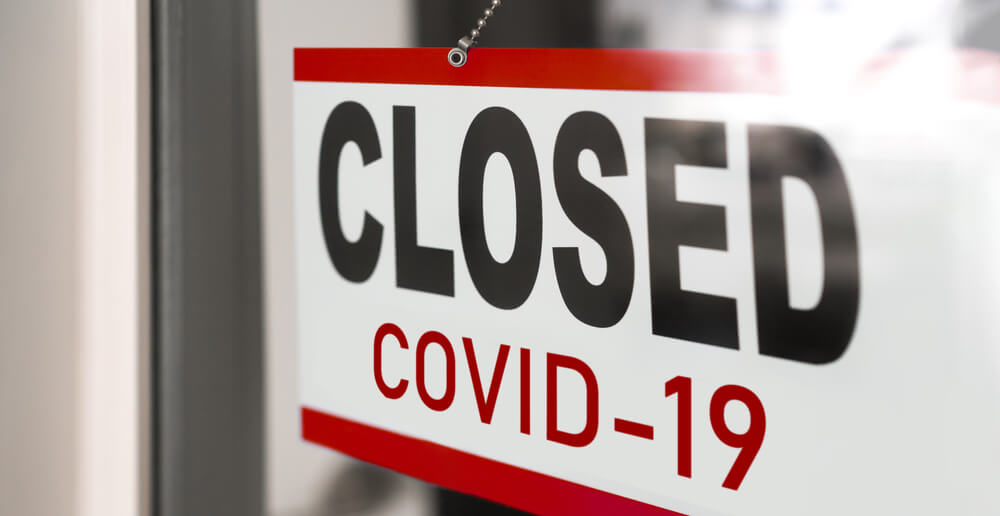Thursday, May 7, 2020 — Week 8 of the Quarantine
SAN MARTIN, ARGENTINA — The authorities may or may not have “flattened the curve” of the coronavirus.
But they’ve surely squashed the U.S. economy. Today, we scrape it up off the pavement to see how flat it is.
Yahoo! Finance reported Thursday morning that…
Another 3 million Americans are expected to have filed for unemployment benefits during the week ending May 2, following 3.839 million initial jobless claims in the prior week. So far over the past six weeks, more than 30 million Americans have filed unemployment insurance claims.
So far, more people have lost their jobs than in all the recessions since World War II — put together.
Turning Off the Economy
And now, the press reports that those “temporary” job losses are here to stay. Here’s Bloomberg:
Plenty of layoffs that just a month ago were labeled “temporary” are now tagged “indefinite” or “permanent.” Alongside announcements of sweeping staff cuts by major employers such as Boeing Co. and U.S. Steel Corp. and the accelerating pace of downsizing in brick-and-mortar retailing, such notices are a sign that even as businesses continue to hope for a speedy recovery, they are starting to plan for a slow one.
The new permanent layoffs are hitting a wide swath of the economy both geographically and sectorally. Uber Technologies Inc. on Wednesday became the latest major company to announce long-term layoffs, saying it would be eliminating 3,700 jobs, or 14% of its staff worldwide. A day earlier, Airbnb Inc. said it was cutting 25% of its workforce, or about 1,900 people worldwide.
Turning off the economy is a bit like shutting down the engines on a transatlantic flight. For a long time, the plane stays in the air. Everything is suddenly quiet.
Passengers don’t know what to think. Up in business class, investors look to buy the dip… and expect the pilot to pour on the fuel and gain altitude at any minute.
Back in economy, though, people aren’t so sure. A few look out the window and see the ground getting closer.
No More Paychecks
Even before the virus struck, some 100 million Americans were barely able to stay aloft. They were said to be living “paycheck to paycheck.” Then, the paychecks stopped. What are they to do now?
No more casual trips to the mall. No more family dinners at TGI Fridays. No more filling up the tank to visit relatives or go to a football game.
They’re not buying cars, either; auto sales have dropped to 50-year lows. And their cars are being repossessed. Used car prices have collapsed.
They’re not going anywhere; gasoline consumption, too, is back to levels not seen since the Nixon administration.
Airport traffic has dropped by 95%. Airbnb bookings are down some 80% in the last 90 days.
And they’re not buying much of anything; consumer spending — the jet fuel of GDP — has dropped more than ever before in history.
According to The New York Times, a third of renters failed to pay their rent in the first week of April. And so far, 4 million people aren’t paying their mortgages. Several states have already issued moratoria on evictions.
Few mortgage companies are going to want to foreclose, anyway. After all, what would they do with the foreclosed property?
More Scared Than 2008
And how about the business world? Here are a few headlines from Bloomberg yesterday:
Hundreds of Earnings Calls Show Companies Are More Scared Than 2008
BlackRock’s Fink Delivers Grim Outlook With Tax Hikes for Corporate America
Gloom Grips U.S. Small Businesses, With 52% Predicting Failure
Whoa! Have the feds put half of America’s small firms out of business? Bloomberg continues:
Covid-19 could shutter most American small businesses.
That’s according to a new survey from the Society for Human Resource Management which found that 52% expect to be out of business within six months. The survey of 375 firms was conducted between April 15-21 and doesn’t account for improved business conditions as some U.S. states reopen this month.
Economist Gary Shilling puts this into perspective:
This pandemic is likely to be the most disruptive financial and social event since World War II, with equally long-lasting consequences. Many will no doubt restrain spending in future years to rebuild savings, especially since the crisis caught them at a time of high debts and short financial reserves. A Fed study found that 40% don’t have enough cash on hand to cover an unexpected $400 expense. Also, the $600 extra unemployment checks on top of state unemployment benefits may induce some never to return to work, especially since those payments will probably be continued into 2021.
Bumpy Landing
As for April’s stock market rally, Mr. Shilling added this:
Don’t be fooled by the recent rebound in stocks; the investment scene is beginning to resemble the 1929 market crash and the early 1930s Great Depression… This looks like a bear market rally, similar to that in 1929-1930, with an additional 30% to 40% drop in stocks to come as the deep global recession stretches into 2021…
So far, the big bird is still gliding. But the passengers are getting nervous. What happens when they try to land this thing?
We’ll soon find out.
Regards,
Bill
• This article was originally published by Bonner & Partners. You can learn more about Bill and Bill Bonner’s Diary right here.
